Overview of the Workshop - Photo: VGP/HM
On July 8, the National Data Association and the Ministry of Public Security organized the Workshop "Traceability Authentication - The driving force for sustainable development of Vietnam's digital economy".
The workshop was organized to respond to the task of implementing national policies on digital economic development, digital transformation and consumer rights protection, while concretizing the orientations in Resolution 57-NQ/TW of the Politburo and legal documents related to digital transformation, logistics, agriculture, e-commerce and data protection.
The workshop also aims to promote cooperation between management agencies, businesses and technology organizations in developing traceability solutions, contributing to the formation of a data and technology platform serving digital commerce, healthcare, agriculture , logistics and smart, safe supply chains...
Why are counterfeit goods still "alive"?
At the workshop, Colonel Pham Minh Tien, Deputy Director of the National Data Center (C12), Ministry of Public Security, said that in the first 5 months of 2025, functional forces across the country handled more than 40,000 cases of smuggling, counterfeit goods, and poor quality goods, with a total fine value of up to 6,500 billion VND.
Among them, the most prominent is the situation of counterfeit goods in the food and pharmaceutical sectors, which directly affects people's health and lives.
According to Colonel Pham Minh Tien, some shortcomings are occurring in our country. That is, there is no unified identification code nationwide; data is scattered across ministries and sectors and is not yet concentrated; traceability is currently implemented but is only a formality, not showing the supply chain, from raw materials, production to consumers; there is no effective control of goods on e-commerce platforms; consumers do not have a specific tool for authentication.
Colonel Pham Minh Tien speaks at the conference - Photo: VGP/HM
In addition, the reasons pointed out by the authorities are that the handling is still manual, passive, and not strictly controlled; businesses are not required to participate in the goods traceability system; there is a lack of connection between traceability and goods quality inspection; there is no centralized database to evaluate and control goods.
Regarding the field of market management, Mr. Tran Huu Linh, Director of the Department of Domestic Market Management and Development, Ministry of Industry and Trade, emphasized that counterfeit goods have been a long-standing problem. Previously, management agencies detected counterfeit goods with the naked eye, so it was not easy to punish units and stores selling counterfeit goods.
Taking the example of a store selling fake handbags of big, reputable brands, Mr. Tran Huu Linh said that, clearly, with the naked eye, everyone knows that it is a fake bag (imitation goods), but the store owner insists, on what basis can he confirm that it is a fake. At that time, the authorities will ask about the documents, origin...
However, the reality is that to prove that a product is fake, it is necessary to have confirmation from the owner of the big brand handbag company to confirm that it is fake and then the authorities are allowed to punish the store selling fake bags. Even within 24 hours, the authorities must come to a conclusion proving that the product is fake, otherwise the product will have to be returned.
"These are shortcomings in the handling of counterfeit goods in the past, which is also the reason why these incidents still occur. However, we have now started using technology to support the detection of counterfeit goods. These tools not only support people in identifying counterfeit goods, but also help management agencies carry out their responsibilities," said a representative of the Ministry of Industry and Trade.
Mr. Tran Huu Linh emphasized the need to trace to authenticate the origin of goods and trace to manage goods - Photo: VGP/HM
Is it mandatory to authenticate the origin of goods?
From this reality, Mr. Tran Huu Linh emphasized the need to trace to authenticate the origin of goods and trace to manage goods. In particular, this work must be mandatory because if it is not mandatory, it will be very difficult to do.
From the perspective of state management of data, Colonel Pham Minh Tien also said that the deployment of modern traceability platforms, applying advanced technologies such as blockchain, will be an important solution to help improve management efficiency, ensure market safety and increase transparency throughout the entire supply chain.
It is worth noting that these platforms are developed by Vietnamese businesses and technology engineers, suitable for the characteristics of the domestic market and are increasingly being improved towards standardization and integration with the national data infrastructure.
In particular, as Vietnam promotes international trade and exports, proving the origin, quality, and production process of products through a traceability system will help international partners feel secure, while strengthening the capacity to monitor the domestic market, protecting the interests of consumers and legitimate businesses.
According to Mr. Nguyen Huy, the application of technology for traceability is mandatory - Photo: VGP/HM
"Digital passport" for goods
Mr. Bui Ba Chinh, Acting Director of the National Code and Barcode Center, Ministry of Science and Technology, also said that currently, counterfeit goods are mainly divided into 3 groups. These are fake brands, fake quality and fake origin.
In 2024 alone, the management agencies handled 47,000 cases. Typical cases include fake medicine in Ho Chi Minh City, fake milk in Hanoi, fake electronic devices in Hanoi, fake cosmetics in Nghe An... These cases have been affecting the production of goods of Vietnamese enterprises and affecting the national brand.
Currently, countries around the world such as the US, Canada and Europe are also implementing traceability with coded identification throughout the entire production chain, up to the export stage, very effectively.
Therefore, Mr. Chinh believes that the solution of using barcodes to trace the origin of products is very important. This is also a way to identify products and declare them transparently under the supervision of the entire population. At the same time, it is also considered a "digital passport" for products, aiming at the international market, ensuring the goal of exporting goods and raising the national level.
And to trace the origin of goods, Mr. Bui Ba Chinh emphasized, we need to connect data of ministries and localities along the route.
To date, Vietnam has published 35 standards on product and goods traceability. However, according to experts, these standards need to be applied and go deep into the product supply chain.
Proposal for product origin authentication at national level
As a business operating in three main areas including consignment import, distribution of drugs - functional foods and retail pharmacy system, Mr. Hoang Tuan Anh, Technology Director of Eco Pharma also shared that the company has introduced solutions for product traceability such as QR codes. However, counterfeit goods are like a "matrix" so the company has to come up with many other measures.
However, current authentication solutions are mainly self-discovered by businesses or from technology companies but have not been verified by state agencies. Current platforms are still fragmented and not interconnected, so businesses have to invest a lot, causing operating costs. Businesses also do not interconnect data and connect with national data...
Therefore, Mr. Hoang Tuan Anh proposed that it is necessary to authenticate product traceability at the national level and customers can authenticate right at the point of sale.
Mr. Nguyen Huy, Head of Technology Department, National Data Association affirmed that the issue of product traceability is not a new issue, but has recently become a pressing issue in society.
In fact, it is true that there are regulations, organizations and businesses implementing this, but it is still very fragmented, separate and there is currently no unified, nationwide mechanism. Currently, each business has its own solutions.
However, many large enterprises have technology and systems for products and product authentication, but they are not based on uniform standards nationwide or internationally. In particular, that set of standards is not authenticated by a state agency, but simply connected internally within each enterprise.
"In the context of the whole country implementing digital transformation and digitalizing the economy, the application of technology for traceability is mandatory and must be a comprehensive policy from top to bottom, with synchronous management from the central to local levels and applied to all businesses. Only then can we identify, authenticate and trace the origin of goods," Mr. Huy emphasized.
Hien Minh
Source: https://baochinhphu.vn/xac-thuc-truy-xuat-nguon-goc-thuoc-dac-tri-chong-hang-gia-102250708142334263.htm


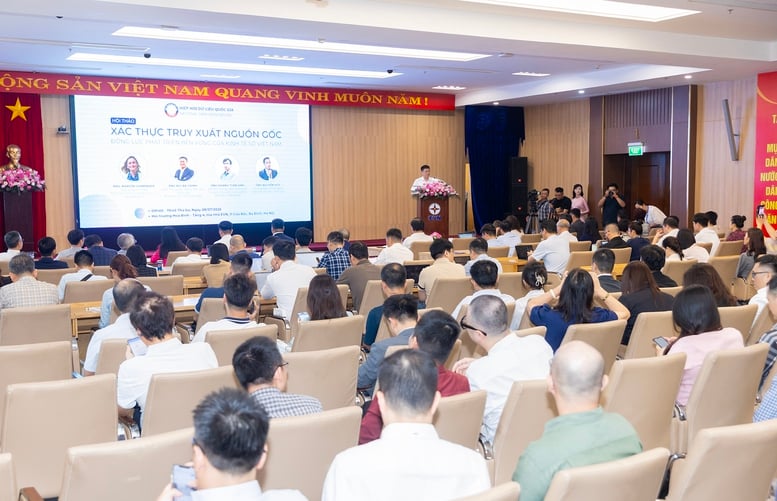
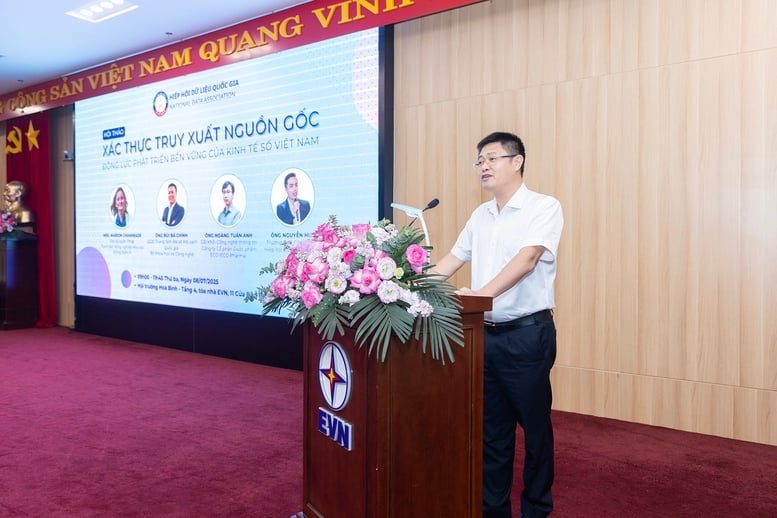

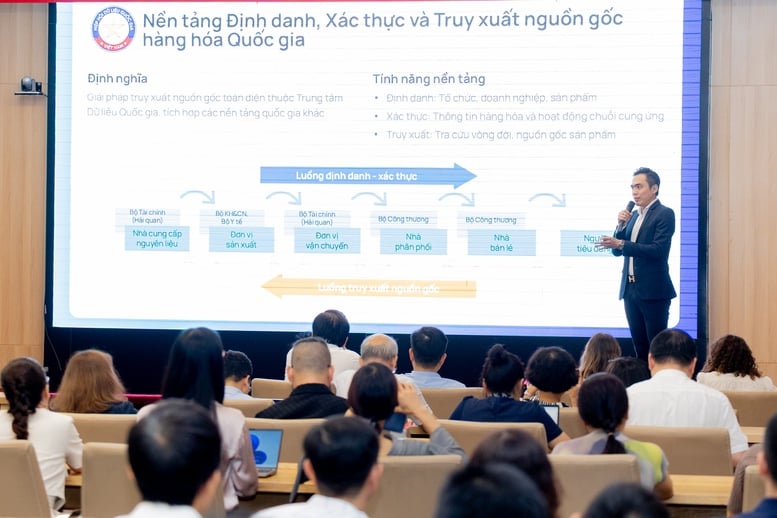

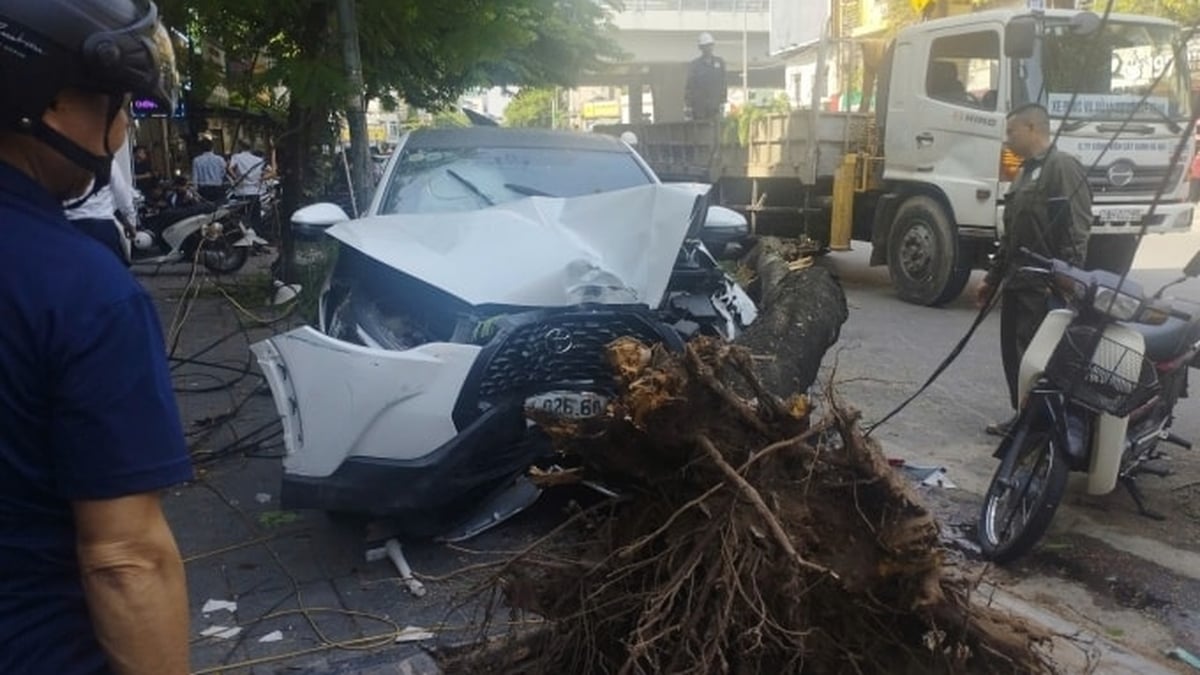

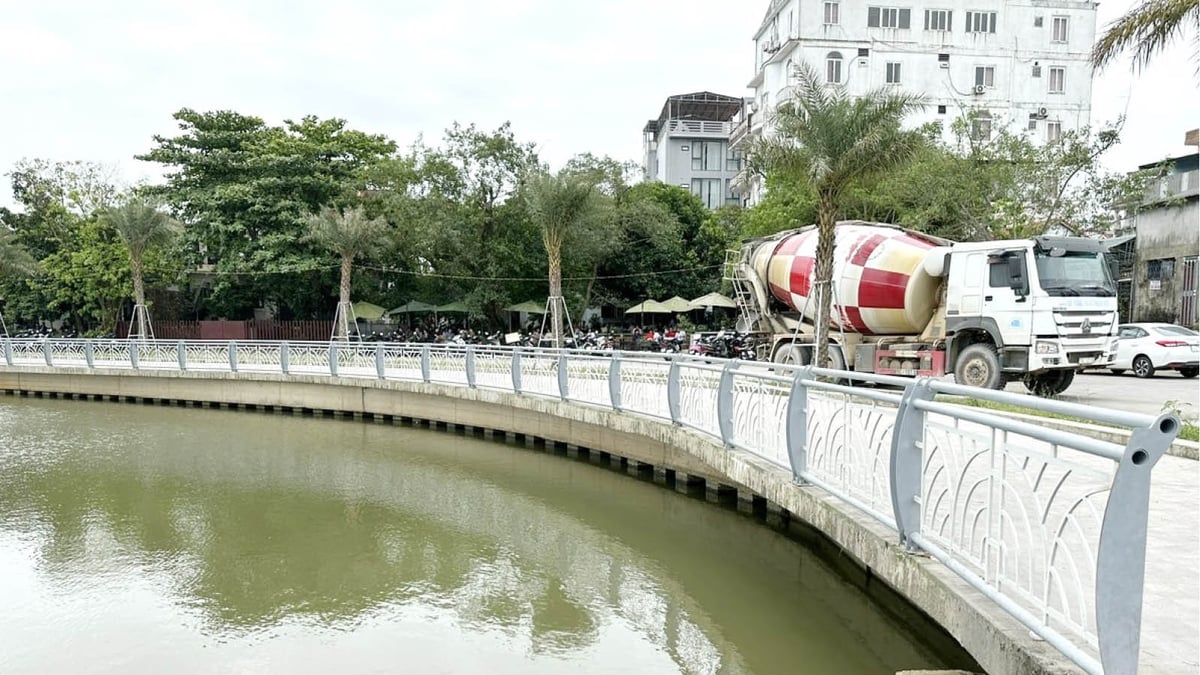
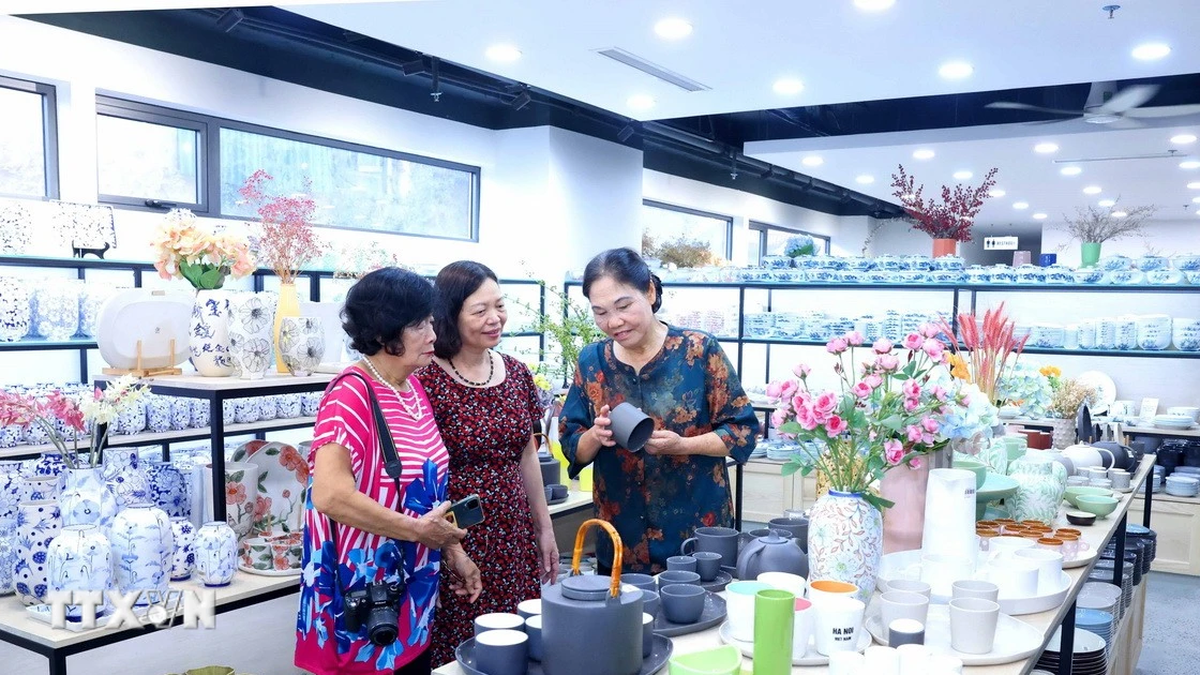
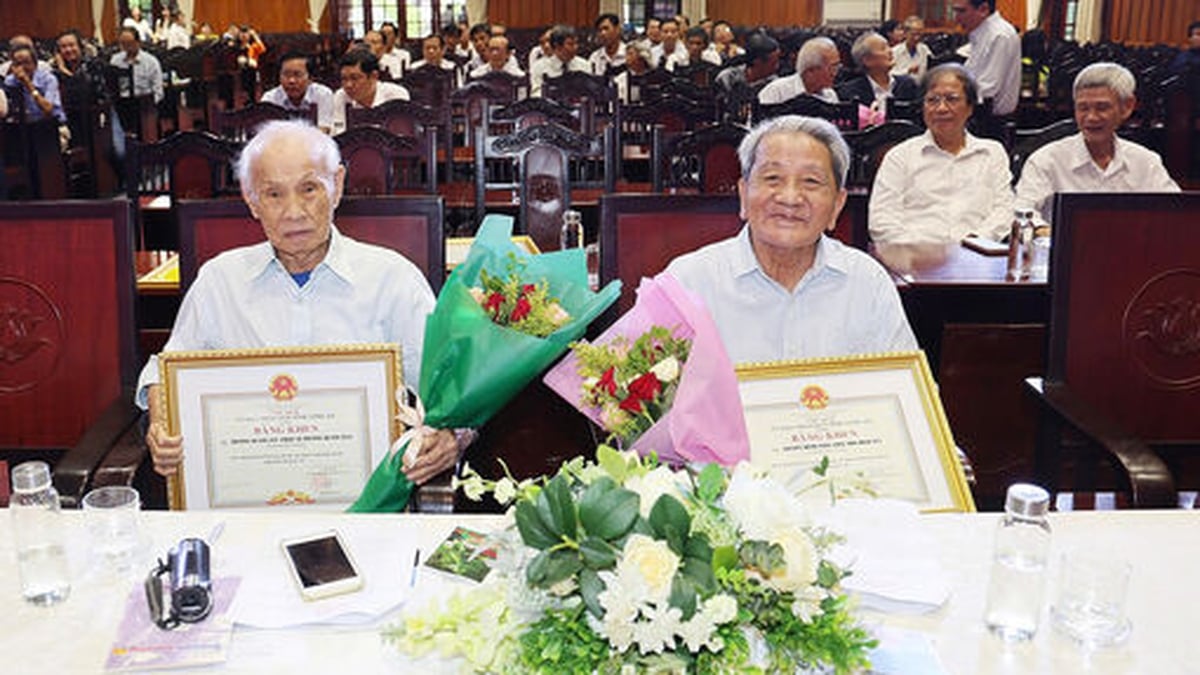



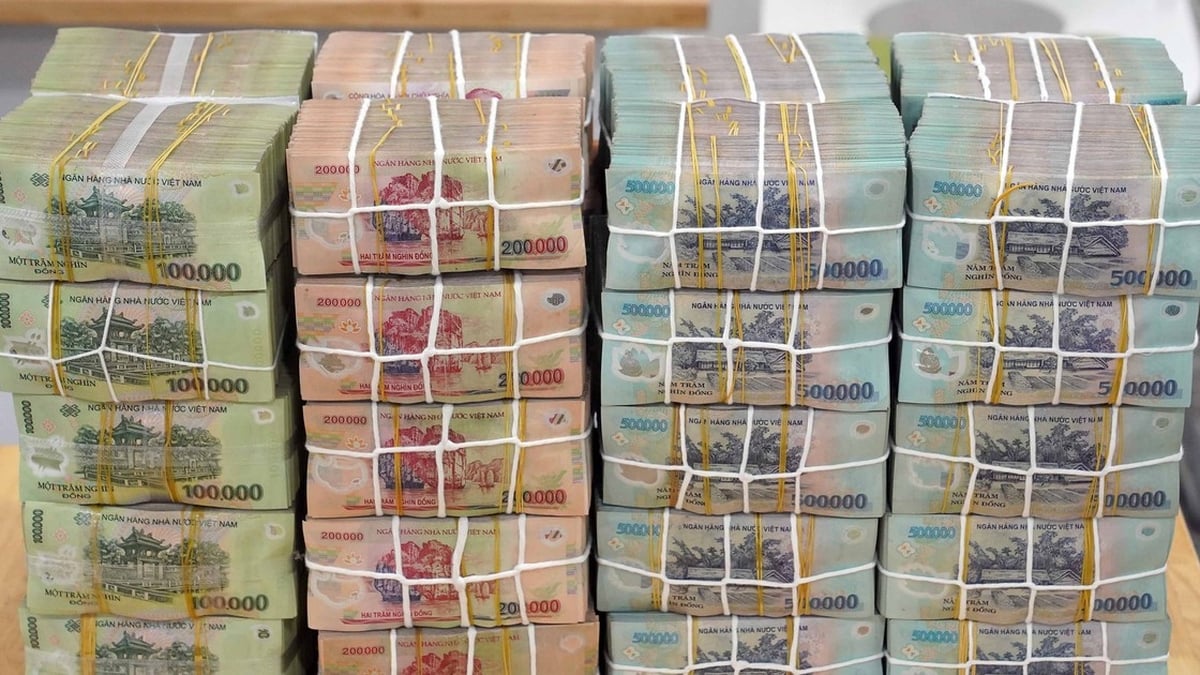
























































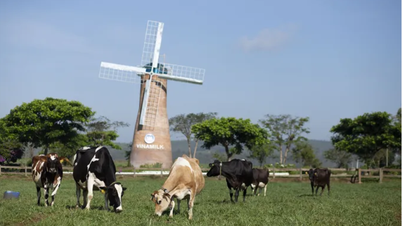

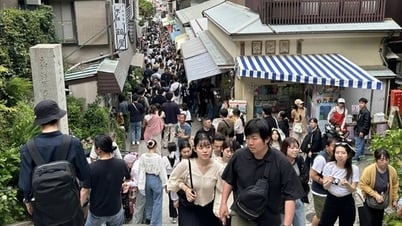
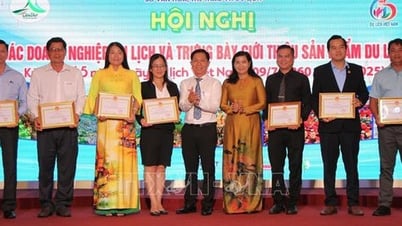









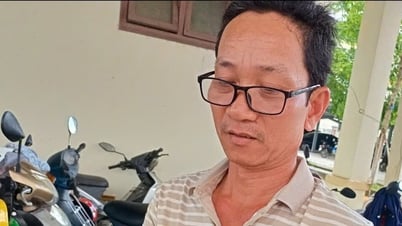



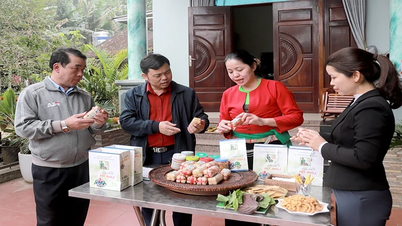










Comment (0)